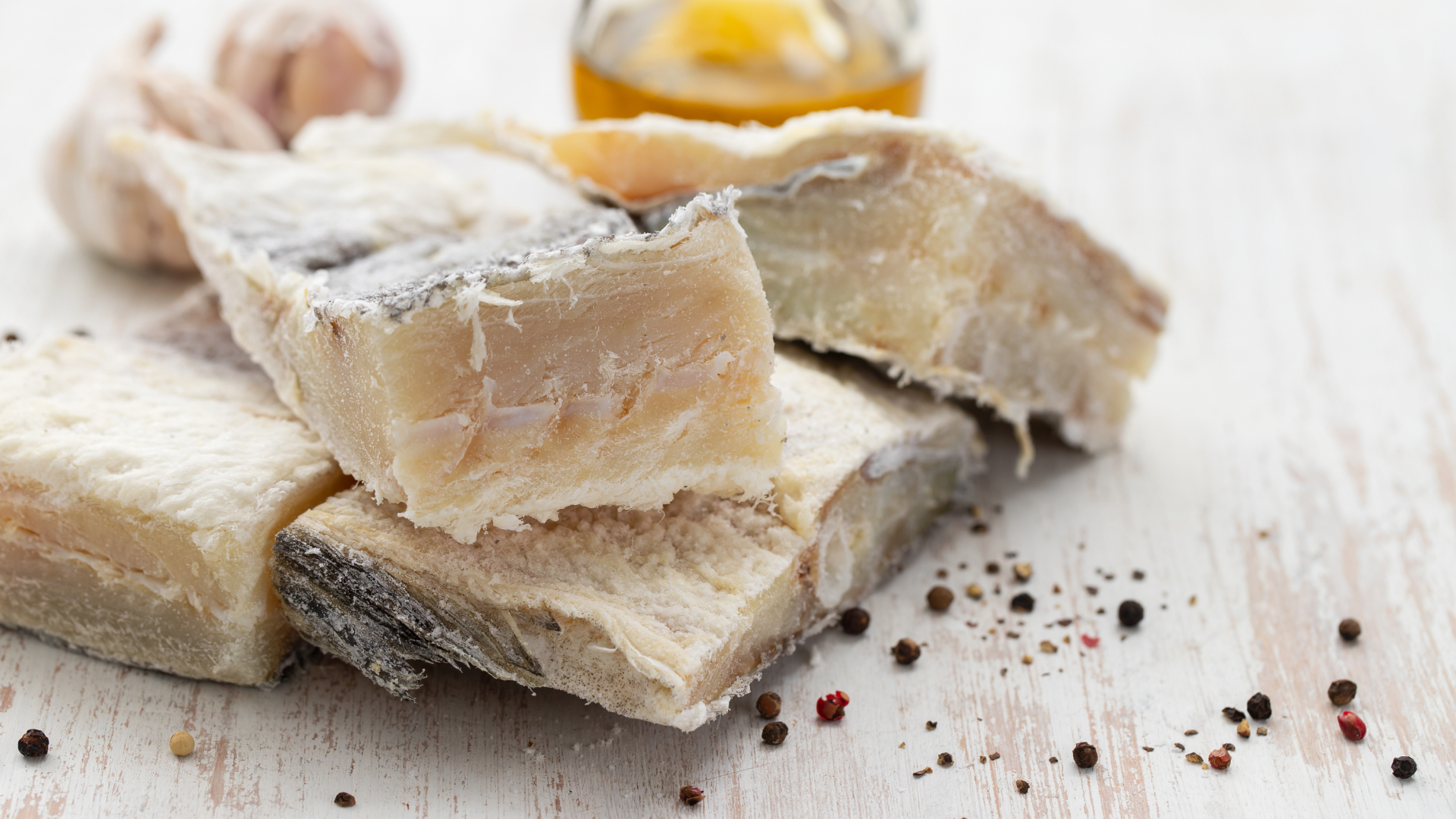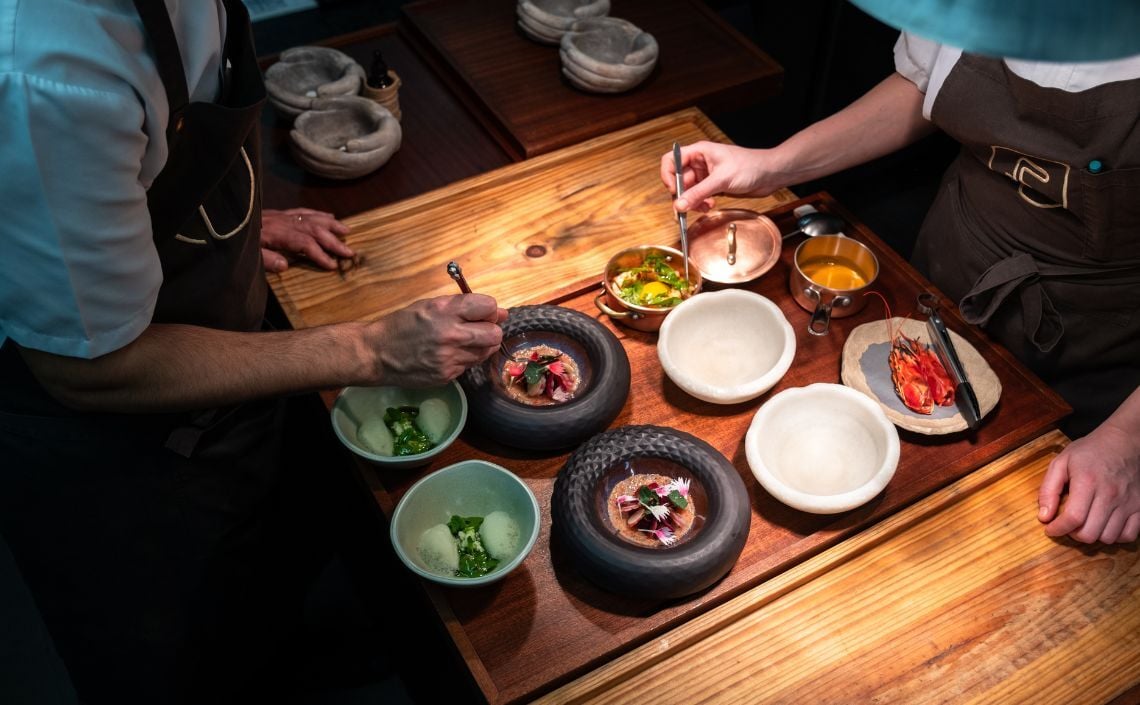Embarking on a gastronomic journey through Portugal promises a mix of flavors that reflects the country's rich history and diverse landscapes. From coastal stretches to mountainous terrain, Portuguese cuisine is a delicious fusion of fresh ingredients and traditional recipes. In this guide, we will explore the essential dishes that capture the essence of Portuguese gastronomy, providing a roadmap for those wishing to savor this beautiful country's distinctive flavors.
Discover a delightful array of Portuguese dishes that are a must-try, showcasing the rich and diverse culinary heritage of the country.
An ode to Portuguese Cuisine
Chapter 1: The Legacy of Bacalhau
As the story begins, it's impossible to ignore the pervasive aroma of Bacalhau, or salted cod, wafting through the air. With roots tracing back to the Age of Discovery, when Portuguese explorers sailed the seas in search of new lands, Bacalhau became a staple due to its long shelf life. Today, it holds a special place in Portuguese hearts, with dishes like Bacalhau à Brás showcasing the nation's enduring love affair with this versatile ingredient.
Chapter 2: Soups to Warm the Soul
Portuguese hospitality is synonymous with warmth, and nowhere is this more evident than in the steaming bowls of Caldo Verde. A simple yet hearty soup, Caldo Verde tells the tale of communal gatherings and family feasts. Kale, potatoes, chorizo – the ingredients come together to create a comforting symphony that resonates with the spirit of Portugal.
Chapter 3: Francesinha and the Porto Connection
The Francesinha's history dates back to the 20th century, specifically the 1960s, when a Portuguese emigrant returning from France brought the idea of the croque-monsieur to Porto. However, the adaptation of this French classic quickly evolved into something entirely different. The Portuguese, renowned for their love of hearty meals, decided to create a sandwich that could truly satisfy their appetites.
Today, the Francesinha stands as a testament to Porto's creativity and culinary innovation. It has transcended its humble origins to become a must-try dish for locals and tourists alike. The legacy of the Francesinha is not just in its taste but in the vibrant culture and community it has fostered in the streets of Porto.
Chapter 4: Arroz de Marisco – A Symphony of the Sea
The Atlantic whispers tales of maritime adventures, and no dish captures this essence better than Arroz de Marisco. A seafood rice dish, it brings together the bounty of the ocean – a testament to Portugal's close relationship with the sea. With each bite, one can taste the briny air and feel the rhythm of the tides.
Chapter 5: Pastel de Nata – Sweet Beginnings
The story of Pastel de Nata, a beloved Portuguese pastry, unfolds as a tale of culinary ingenuity and historical richness. Originating from the Jerónimos Monastery in Lisbon, this delectable treat traces its roots back to the 18th century when Catholic monks used egg whites to starch their clothes, resulting in a surplus of egg yolks. Resourcefully, the monks incorporated these excess yolks into a custard filling and wrapped it in flaky, puff pastry. This delightful creation, known for its creamy interior and caramelized slightly crispy top, gained popularity among locals and soon became a staple in Portuguese bakeries. Today, Pastel de Nata is not just a sweet indulgence but a cultural icon, representing the fusion of history, craftsmanship, and the rich flavors of Portugal.
And the question more frequently asked is What is the difference between pastel de nata and pastel de belém
The terms "Pastel de Nata" and "Pastel de Belém" are often used interchangeably, but there is a nuanced difference between the two. "Pastel de Nata" refers to the iconic Portuguese custard tart in a general sense and is widely available throughout Portugal. It consists of flaky puff pastry filled with a creamy custard made from eggs, sugar, flour, and milk. The top is typically slightly caramelized, giving it a delightful combination of textures. On the other hand, "Pastel de Belém" specifically refers to a variation of the custard tart that originates from the Antiga Confeitaria de Belém bakery in the Belém district of Lisbon. The bakery has been producing this special version since 1837, and it is often considered the original or most authentic Pastel de Nata. The recipe for Pastel de Belém is a closely guarded secret known only to a few master bakers at the original bakery, which has contributed to its unique identity. While both Pastel de Nata and Pastel de Belém are custard tarts with similar characteristics, the latter is a specific version with a historic connection to a particular bakery in the Belém district of Lisbon.
Chapter 6: Tradition in a Bowl – Cozido à Portuguesa
As we delve into the heart of Portuguese home-cooking, Cozido à Portuguesa emerges. A stew that simmers with various meats, sausages, and vegetables, it encapsulates the spirit of tradition passed down through generations. It's a celebration of flavor, family, and the enduring love for uncomplicated, hearty meals.
Chapter 7: Chasing Aromas with Amêijoas à Bulhão Pato
For those chasing the scent of the sea, Amêijoas à Bulhão Pato offers a sensory journey. The clams, garlic, coriander, and white wine come together to create a dish that dances on the palate, showcasing the purity and quality of Portuguese seafood.
Chapter 8: Alentejo's Love Affair – Carne de Porco à Alentejana
In the sun-drenched region of Alentejo, the story takes a turn towards the land and the sea. Carne de Porco à Alentejana, a fusion of marinated pork and clams, narrates a tale of harmony between two worlds. It is a dish that embodies the culinary diversity found within the borders of Portugal.
Chapter 9: Chouriço Assado – Simplicity in Spice
In the culinary tale, simplicity has its chapter, and it's written with the sizzle of Chouriço Assado. Grilled or roasted chorizo, crispy on the outside and bursting with smoky flavors, adds a touch of spice to the narrative. It's a dish that proves that sometimes, the simplest pleasures are the most profound.
Chapter 10: The Finale – Queijo da Serra
As the journey concludes, there's a final note – the creamy and flavorful Queijo da Serra. This sheep's milk cheese from the Serra da Estrela region is a perfect punctuation mark to the culinary tale, inviting you to savor the richness and diversity that Portugal has to offer.
.png?width=1920&height=1080&name=A%20Guide%20to%20Portuguese%20Food%20Essential%20Dishes%20to%20Try%20in%20Portugal%20(10).png) Sardines, an also unmissable dish while in Portugal
Sardines, an also unmissable dish while in Portugal
Portuguese cuisine invites you on a sensory adventure, promising a rich mix of flavors that reflect the country's history, geography, and cultural diversity. Whether you're enjoying seafood on the coast or savory stews in the mountains, each dish encapsulates a unique aspect of Portugal's culinary identity. As you embark on your journey, let this guide serve as a roadmap to the essential Portuguese dishes, ensuring that your exploration of this vibrant cuisine is as authentic and tasty as the country itself. So, set your table, take a seat, and let the culinary journey begin.


.png?width=1920&height=1080&name=A%20Guide%20to%20Portuguese%20Food%20Essential%20Dishes%20to%20Try%20in%20Portugal%20(1).png)
.png?width=1920&height=1080&name=A%20Guide%20to%20Portuguese%20Food%20Essential%20Dishes%20to%20Try%20in%20Portugal%20(2).png)

.png?width=1920&height=1080&name=A%20Guide%20to%20Portuguese%20Food%20Essential%20Dishes%20to%20Try%20in%20Portugal%20(3).png)
.png?width=1920&height=1080&name=A%20Guide%20to%20Portuguese%20Food%20Essential%20Dishes%20to%20Try%20in%20Portugal%20(4).png)
.png?width=1920&height=1080&name=A%20Guide%20to%20Portuguese%20Food%20Essential%20Dishes%20to%20Try%20in%20Portugal%20(5).png)
.png?width=1920&height=1080&name=A%20Guide%20to%20Portuguese%20Food%20Essential%20Dishes%20to%20Try%20in%20Portugal%20(6).png)
.png?width=1920&height=1080&name=A%20Guide%20to%20Portuguese%20Food%20Essential%20Dishes%20to%20Try%20in%20Portugal%20(7).png)
.png?width=1920&height=1080&name=A%20Guide%20to%20Portuguese%20Food%20Essential%20Dishes%20to%20Try%20in%20Portugal%20(8).png)
.png?width=1920&height=1080&name=A%20Guide%20to%20Portuguese%20Food%20Essential%20Dishes%20to%20Try%20in%20Portugal%20(9).png)








